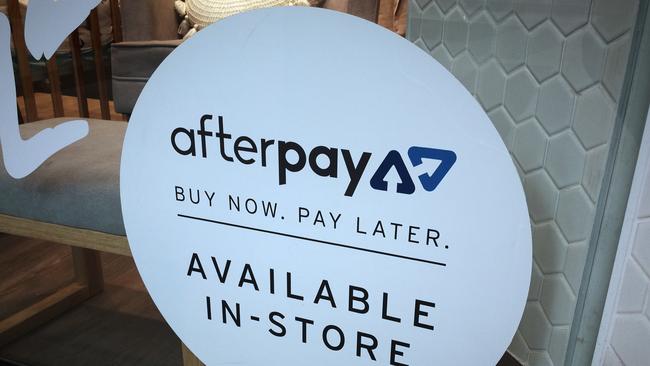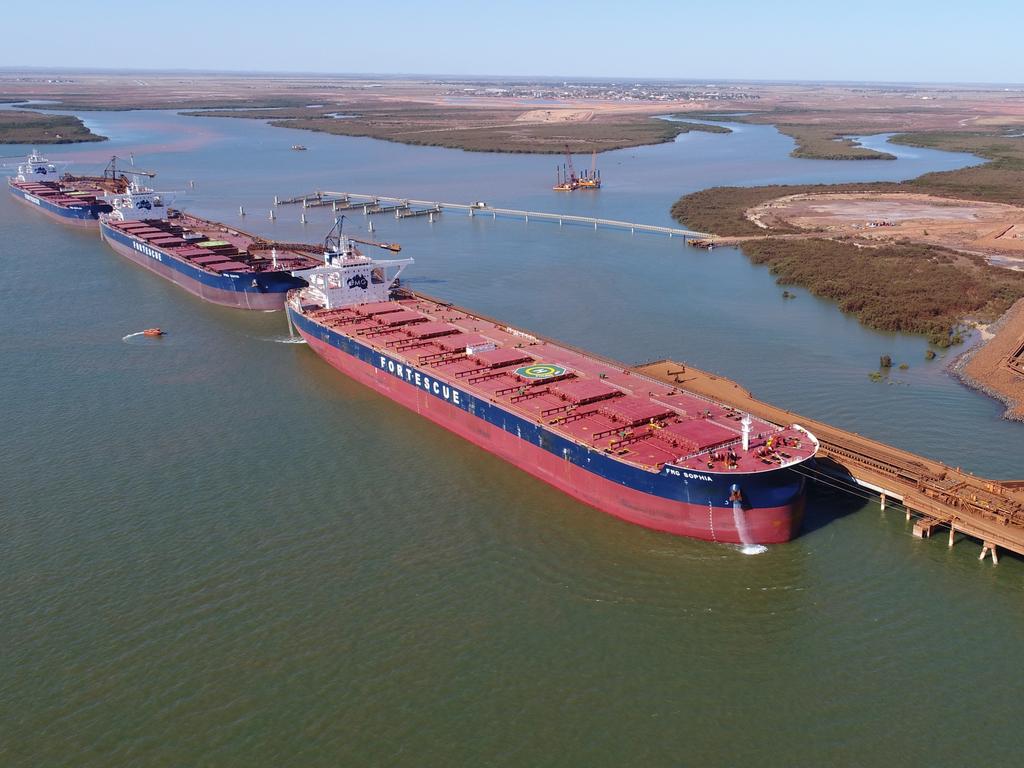Afterpay executives finish 2020 with $80m windfall after share options spree
Buy now pay later has delivered Afterpay riches, particularly for its executives after they embarked on an options bonanza.

As Australians have been buying up a storm online, with Boxing Day sales still fresh, Afterpay executives have netted an $80m profit after embarking on their own spending spree.
Since October when Afterpay shares breached $100, executives of the buy now pay later outfit have been quietly exercising options - more than 716,000 of them.
The combined cost of options exercised in the past three months totalled $4.5m, but their market value is eye-watering $84.5m, delivering executives a profit on paper of more than $80m.
The biggest windfall happened on Remembrance Day, when 200,000 options were exercised at just $1 apiece - seven weeks before their expiry on New Year’s Eve. Those shares are now worth $23.6m - something to remember indeed and celebrate entering 2021.
Not even the holiday period could dull the option spree, with 1500 and 640 options exercised at $24.69 and $29.15 each respectively at 1pm on Thursday.
That parcel of shares are now worth $252,520 after Afterpay shares closed at $118 on Thursday.
While Afterpay - which counts billionaire Alex Waislitz among its investors - has had a fairy-tale run in an unprecedented sharemarket trading year - finishing 2020 more than 300 per cent stronger, despite a deep-dive to around $9 in March - market experts have warned investors should not get carried away with the company’s meteoric rise.
Afterpay is not alone, fellow consumer shopping-focused fintech stocks Sezzle (up 195 per cent), Zip (49 per cent) and Splitit (96 per cent) also soared in price and valuation in the past 12 months.
“We just can’t get our head around some of the valuations,” said Argo Investments’ chief executive Jason Beddow told The Australian this week.
“We do consider a number of the Australian technology companies to be very good quality, well managed businesses with strong growth outlooks, however we struggle to justify the valuations placed on some of them.”
Recent billionaires and Afterpay co-founders Nick Molnar and Anthony Eisen went public with their deferred pay platform for shoppers in 2017, but the surge in e-commerce transactions during the pandemic has pushed its value to nearly $34bn – more than that of Coles at $25bn or Woodside at $22bn.


The buy now pay later phenomenon is also hoping to fuel growth for Latitude Financial, after two failed attempts at hitting the ASX boards.
In October, Latitude chief executive Ahmed Fahour outlined his plans to The Weekend Australian to expand the company’s interest-free offering to bigger ticket items, including home renovations and medical procedures for customers and their pets, as buy now, pay later shopping surges at the expense of traditional credit cards.
The non-bank lender will progressively lift the limit of its BNPL offering from $3000-$5000 to $10,000 by March and then $30,000 in the second half of 2021.
Mr Fahour said the company’s interest-free LatitudePay platform had reached more than 500,000 customers in its first year of operation and had become a popular alternative to credit cards, the use of which has sunk to a 15-year low as Australians seek out cheaper lending services.
From the beginning of the coronavirus pandemic, Australian credit card holders have wiped $6.3bn, which is a 23.5 per cent reduction in the total amount owing across all accounts. According to the RBA, 13.1 million credit cards are in circulation, the lowest number since April 2008.
Last month RBA governor Philip Lowe gave the burgeoning buy now pay later sector a further boost by declaring the “no-surcharge rules” underpinning the business models of BNPL operators were safe - for now.
“So consistent with its philosophy of only regulating when it is clear that doing so is in the public interest, the board is unlikely to conclude that the BNPL operators should be required to remove their no-surcharge rules right now,” Dr Lowe said in a speech to the Australian Payments Network.
Dr Lowe added: “Even the largest BNPL providers still account for a small proportion of total consumer payments in Australia, notwithstanding their rapid growth”.







To join the conversation, please log in. Don't have an account? Register
Join the conversation, you are commenting as Logout